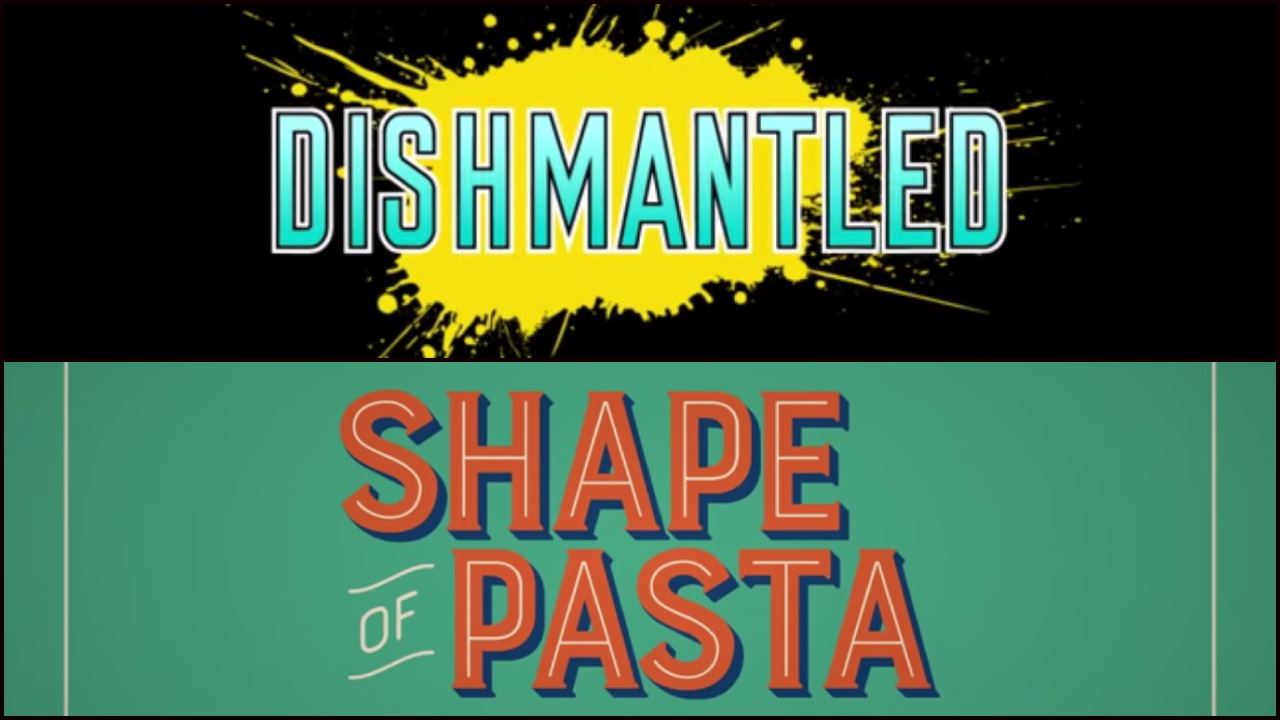A Taste Test Of Quibi's New Bite-Sized Food Programming
Ladies and gentlemen, it is finally time... for Quibi. After what feels like 27 years of hearing about it, the new mobile-only streaming platform founded by DreamWorks co-founder Jeffrey Katzenberg and helmed by former Hewlett Packard Enterprise CEO Meg Whitman has at last arrived, bringing a slate of 10-minutes-or-less entertainment directly to our phones. While I think this is actually a pretty great idea, I am less interested in paying $4.99 a month (with ads) for yet another streaming service, especially as I already have too many shows I need to catch up on. However, Quibi is offering a 90-day trial in the hopes of getting us all addicted to shows like Singled Out (it's back, but with Keke Palmer!), Punk'd (it's back, but with Chance the Rapper!), and Chrissy's Court (The People's Court is back, but with Chrissy Teigen!). Before I watch (and likely tweet) about all of those shows, I first needed to check out Quibi's forays into original food programming: the docuseries Shape of Pasta and the game show Dishmantled. Because if there are three things I'm an expert at, it's cooking, watching TV, and dicking around on my phone.
The concept of Dishmantled, hosted by the ever so delightful Titus Burgess, is as follows: two contestants are blindfolded, they are shot with a cannon full of food, they lick the food off the floor and their bodies, and then they're off to the kitchen to replicate what they believe the dish originally was. The food is then served to Burgess and two guest judges—one a celebrity chef, one an actual celebrity—who judge nothing, because this show is a guessing game and there is literally no reason for them to be there. The person whose dish has the most similar ingredients to the one that was shot at them from a cannon wins $5,000. It's the kind of idea that sounds funny at first but quickly loses its charm, which is exceptionally problematic for a show is only six minutes long. But watching people get pelted with food is always enjoyable, so I'm not going to complain all that much about it. I award the the first 60 seconds of Dishmantled, mostly opening credits, a C+. Minutes 1:10—2:30, which include the food pelting, score an A+++. The rest of it is a solid B.
Now, on to Shape of Pasta, which is been difficult to write about because it is difficult to watch. The premise: Chef Evan Funke travels around Italy seeking out old women who can teach him how to make rare types of pasta. It is meant to be a serious, Mind of a Chef–style show, and perhaps the tone, framing, and dialogue of this type of show would have been more palatable a few weeks ago. But now, through no fault of his own, Funke's dramatic narrations, done in a voice that can be best described as "Phone Sex Batman," sound more ominous than intense. The sweeping panoramas of rural Italian villages, shot in a way that evokes their silence and isolation, now seems a bit eerie. And then, there are the voiceovers, played over montages of elderly people with forlorn gazes, that emphasize how "The [pasta] shape, and the town, are near extinction" and "the culture is dying" and there are "so many older people."
I tried to separate my enjoyment of the show from current events as much as I could, but it's impossible. By its very design, this show frames elderly Italian pasta makers as if they were mythical beasts, living in villages that were built when fairy tales were being written. Shape of Pasta is cut from the same cloth as the popular YouTube series Pasta Grannies, but shot in a way that almost fetishizes these Italian nonnas. And, unlike Pasta Grannies, Shape of Pasta focuses less of its time on the women making the pastas and more on how those women and their mythical ways affect a male chef who earnestly whispers sentences like "Sometimes, tracking down a pasta shape is a little like solving a murder mystery."
I truly believe that Funke is attempting to strike a worshipful tone with this show (in episode one, he does point out that the chefs he'll be seeking out are women), but since I'm a viewer who is already familiar with the independently produced Pasta Grannies and its subject-focused storytelling style, this big-budget version on a billion-dollar platform feels a little patronizing and, quite unfortunately for Funke, extremely ill-timed. I can forgive the latter, but as for the rest of it: do we really need another series about learning "authentic" cooking from simple village folk in order to reimagine it at a fine dining restaurant? Why does this show keep getting made? The women of Shape of Pasta get an A; everything else gets a C+. Though it's got the patina of prestige television, it still feels like a lesser Pasta Grannies, which, incidentally, is an A+ show.
